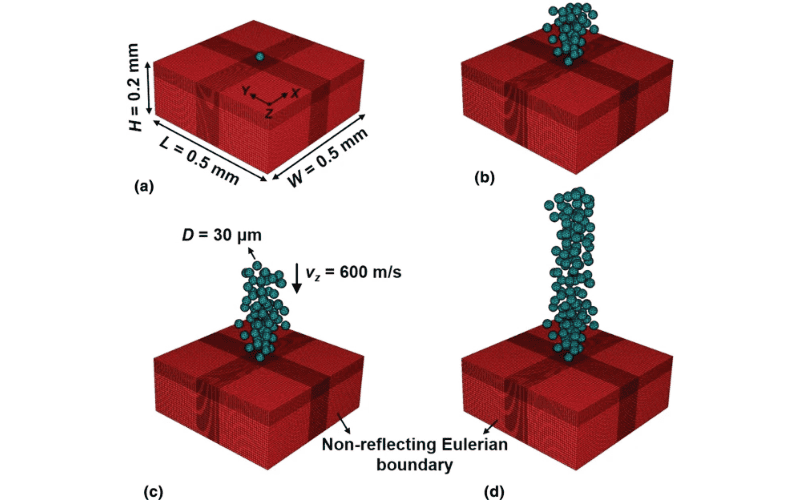August 9, 2023
Modeling Parameters for Finite Element Simulation of Residual Stress in Cold Spray and the Stress Evolution and Distribution
Residual stress is an important factor that affects the properties of cold spray coatings. The study performed 2D single-, 3D single-, and 3D multiple-particle finite element simulations based on the Eulerian method, and hole drilling measurements to study residual stress in cold-sprayed copper coatings. The study examined how the basic modeling parameters affect residual stress in the 2D system. It found that the mesh size, substrate dimension, and simulation duration change the residual stress; while material failure does not have much effect because failure is localized. It also found that thermal softening, which occurs when the initial temperature and/or plastic deformation increase, helps to reduce the residual stress. In addition, the residual stress along the axisymmetric axis of the particle changes from being compressive at first to being compressive-tensile-compressive along the through-depth thickness direction with the interfacial stress being tensile that mainly originates from friction shear of the interfacial layers. For the 3D single-particle simulations, the average residual stress to the through-depth thickness shows tension to compression transition and is similar to the 2D cases. For the 3D multiple-particle simulations, the residual stresses in the coatings/substrate are all compressive because of the repeated and strong impact of the particles, which agree with the experimental measurements. The study also found that the compressive stresses decrease when the coating thickness increases because of more plastic deformation-induced thermal softening. This paper clarifies the effects of Eulerian-based finite element parameters on simulating residual stress in cold spray and will serve as a valuable reference for future studies.
Originally published at Journal of Thermal Spray Technology (Volume 32, pages 1966–1984, 2023)
By Fanchao Meng, Xiaping Fan, Zonglin Chi, Shuying Chen, Xin Chu
